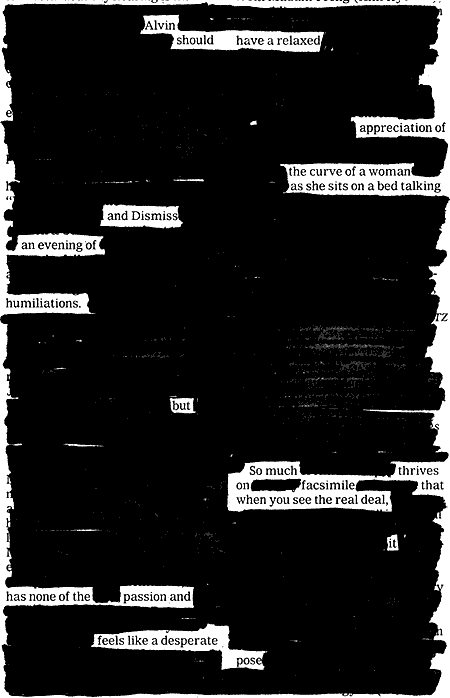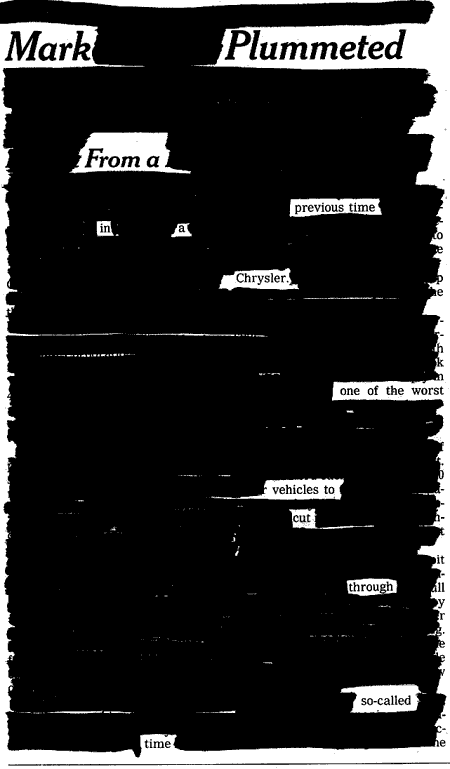Another Finetune playlist. It looks like we’re pulling out of the blahs for right now, but it’s still a good month to die. Hang in there! Listen to music!
Playlist…after the jump…
Another Finetune playlist. It looks like we’re pulling out of the blahs for right now, but it’s still a good month to die. Hang in there! Listen to music!
Playlist…after the jump…
I love FineTune. What a fantastic time-waster. There’s even a special site for listening on your Wii. My profile, here.
Playlist…


I hope this blog hasn’t felt like too much of a copout lately. I hadn’t done one of these blackout poems in months, and then I got thousands (literally! thousands!) of visits from a few mentions and reading people’s comments (some of which are really hilarious) made me interested in doing them again. I love how on the internet you have no control over what you are. If somebody sees your poems, you’re a poet. If somebody sees your comics, you’re a cartoonist.
I am whatever you say I am. I think a famous poet said that once…
Oh wait: that was Eminem.
Ah, well.

This site participates in the Amazon Affiliates program, the proceeds of which keep it free for anyone to read.